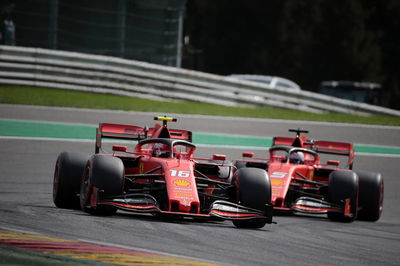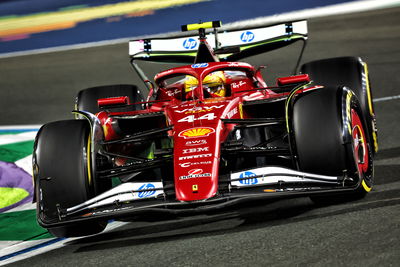On a dark weekend, the paddock’s spirit burns brightly
Saturday at Spa will go down as one of the darkest days in recent motorsport history as the death of Formula 2 racer Anthoine Hubert rocked the community to its very core.
Walking around in the hours following the accident, it felt like all the air and colour had been drained from the paddock. The usual frivolities in the wake of qualifying were replaced by a sombre atmosphere. No music played, all events cancelled. Even in the media centre, the usual stream of chit-chat was replaced by silence, only broken by the tip-tip-tap of computer keyboards.
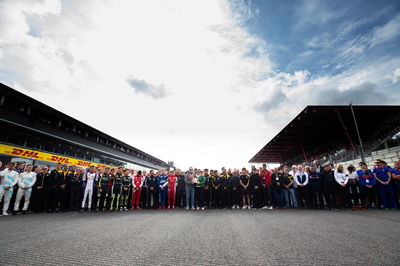
Saturday at Spa will go down as one of the darkest days in recent motorsport history as the death of Formula 2 racer Anthoine Hubert rocked the community to its very core.
Walking around in the hours following the accident, it felt like all the air and colour had been drained from the paddock. The usual frivolities in the wake of qualifying were replaced by a sombre atmosphere. No music played, all events cancelled. Even in the media centre, the usual stream of chit-chat was replaced by silence, only broken by the tip-tip-tap of computer keyboards.
Days like this are so rare now in motorsport, we take it for granted. Safety standards have reached such a high level, we talk about years between deaths, not months. Hubert’s was the first for a driver on a grand prix race weekend since Ayrton Senna back in 1994. (Jules Bianchi succumbed to his injuries nine months after his accident at the Japanese Grand Prix in 2014.)
While such a long spell offers some solace, it doesn’t make days like Saturday any easier.
But the paddock united, as it always does. Tributes were held throughout Sunday for Hubert, starting with a minute’s silence ahead of the Formula 3 race. The front of the grid was packed out with drivers from all three paddocks – F1, F2 and F3 – as well as team personnel, series officials, and, most poignantly, Hubert’s mother and brother, who stood at the front clutching one of his race helmets.
The minute’s silence was repeated prior to the F1 race starting, while a fan initiative to hold a standing ovation of Lap 19 – 19 being Hubert’s race number in F2 – was a success. All teams and drivers ran with ‘Racing for Anthoine’ stickers on their cars and helmets.
The race itself? It didn’t really matter. All anyone could think about was Hubert. But we got the right result: a maiden victory for Charles Leclerc, who started out in karting alongside Hubert, in an incident-free, straightforward race.
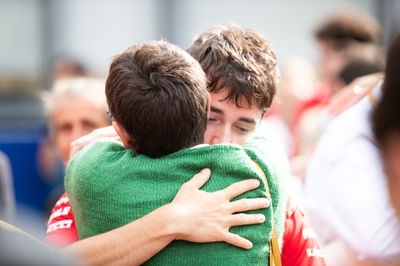
To get back into the cockpit after the death of one of their peers is part of what makes the mentality of racing drivers so fascinating and unique. In the case of Leclerc, to race on in the wake of tragedy is something he sadly has prior experience in, having raced just days after his father’s death in 2017, where he won the F2 race in Baku.
“We all started together back in 2005 altogether with Esteban [Ocon], Anthoine, Pierre [Gasly],” Leclerc said. “We have grown up together through the ranks in karting and in single seaters we took different roads.
“Obviously there were quite a bit of emotions before the race. Then once I got in the car, as I did for my father two years ago, you need to put all the emotions to one side and focus on the job, which is exactly what I did.
“Obviously then you realise at the end of the race, and all the emotions come back once you cross the finish line. I was very happy to win and remember him the way he deserved to be.”
Leclerc’s approach was matched by many on the grid, with Lewis Hamilton and Valtteri Bottas both explaining after the race how they dealt with it.
“You just compartmentalise it and you move forwards, get in there and do your job,” Hamilton said. “From a racer’s point of view and an athlete’s point of view, you switch into a zone. It’s quite easy to switch into that zone.”
Bottas added: “I think when you put the helmet on, there’s not much in your mind than really concentrating on the thing you do, the thing you love to do, driving, and focusing on that. For sure, after, it’s on your mind and always in the back of your mind. But when you go into the zone, there’s no distractions.”
Pierre Gasly, one of the F1 drivers closest to Hubert, stressed the importance of finding such a mindset. “You have to because otherwise you can’t race,” he said. “Once you put the helmet on and go for the formation lap you’re in a different zone and frame of mind, but straight after the chequered flag it was the thing that came into my mind.”
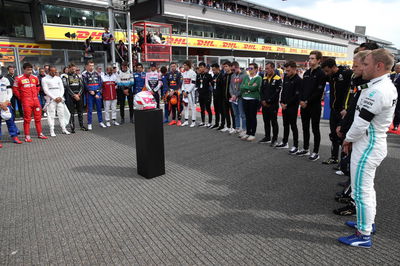
With the raw emotions of Sunday out of the way, few in the paddock were wishing any more time than necessary at Spa. It was a weekend we will all wish never unfolded as it did – but the racing will continue, with just a few days to go until it resumes again at Monza.
But the impact of Hubert’s passing will be felt for some time. “If a young man loses his life in a freak accident you cannot just continue with business as usual,” Mercedes chief Toto Wolff said.
“We are all affected by it, certainly his family. I feel for his family. It must be the most painful experience that I can’t even imagine. And for his friends in the cars, certainly not an easy race. Among those is Charles, so he deserves to win.
“Maybe the right man won at the right time.”
The resumption of the F2 season at Monza will be tough for those on the grid who raced and worked with Hubert. All of them have lost a colleague and friend; Tatiana Calderon has also lost a teammate; Callum Ilott lost a friend and former teammate, having raced alongside Hubert last year in GP3. Ilott’s current teammate, Juan Manuel Correa, remains in intensive care after also being involved in the accident, with a length rehabilitation process set to follow.
One of the lines from BBC Sport writer Andrew Benson’s excellent feature written in the wake of Hubert’s death read: “The human body can only take so much, which is why the risk of motorsport can never be entirely eradicated.” And this is very true. The FIA has already launched an investigation into the accident that will look into every single detail of its cause, but few are questioning the exceptionally high safety standards that now exist in top-level motorsport.
But we also need to remember that the human mind in this. All of these racing drivers, no matter how much we dress them up as being superheroes, are still human beings, many of whom will be going through emotional turmoil right now. No matter how much they find ‘the zone’ when they go out on-track, off-track, they are all going to be handling the obvious emotions: grief; anger; pain.
This won’t be an easy process for anyone – yet with such a united paddock, everyone will be there to offer support to those who need it. We saw that in full swing on Sunday, and that spirit will remain.
The rest of the year will be raced under a dark cloud for the events of Saturday at Spa. But the paddock will get through it together. United.
All racing for Anthoine.
